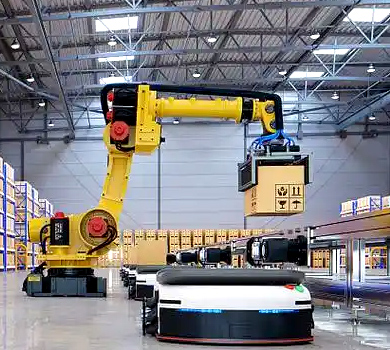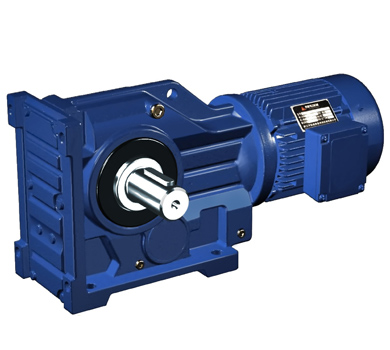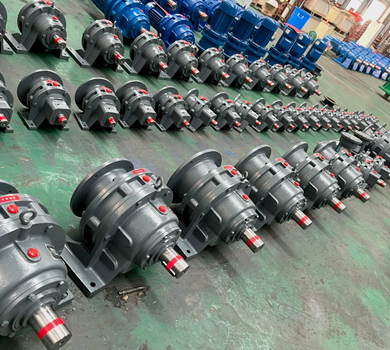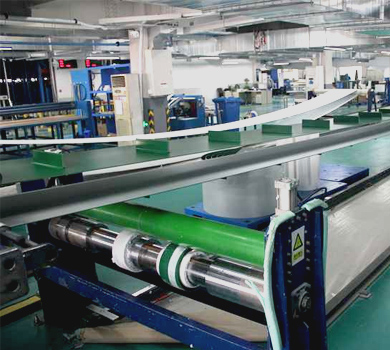1. Industry Challenges and Pain Points Analysis
The photovoltaic (PV) industry, particularly in the field of solar cell stringer conveyor systems, is experiencing rapid growth driven by the global shift toward renewable energy and clean power. Stringer conveyor systems are critical components in the manufacturing process of photovoltaic cells, where they transport precisely aligned solar cell strings through high-temperature and highly controlled environments such as tabbing and welding stages. A typical setup includes robotic arms, linear actuators, indexing tables, and belt-driven conveyors, all of which require high-precision and reliable motion control.
However, the industry is currently facing several challenges:
- High Precision Requirement: Any deviation in alignment during the conveyance can lead to defective cells, increasing scrap and reducing yield.
- Thermal and Environmental Stress: Continuous operation under high heat and in cleanroom conditions demands gearboxes that can withstand thermal expansion and contamination risks.
- Compact Design Constraints: The modular and space-efficient nature of modern PV manufacturing lines requires gear solutions that can fit within tight mechanical envelopes.
- Energy Efficiency and Long Service Life: Equipment must operate continuously with minimal downtime and energy consumption, which places pressure on gearboxes to deliver high efficiency and long-term durability.
2. Critical Role and Technical Requirements of Gearboxes in PV Stringer Conveyor Systems
In PV cell stringer conveyor systems, gearboxes play a pivotal role in ensuring accurate positioning, smooth motion, and long-term reliability. Key performance requirements include:
- High Torque Density: To drive multiple axes and heavy loads without oversized components.
- Exceptional Transmission Accuracy: Sub-micron level backlash control is essential for precise cell alignment.
- Fast Dynamic Response: Enables high-speed, synchronized movement for improved production throughput.
- Compatibility with Servo and Stepper Motors: Ensures seamless integration with existing motion control architectures.
Additionally, gearboxes must be engineered for environmental adaptability (e.g., resistance to heat and dust), extended service life (often 10,000+ hours), and minimal maintenance (e.g., long lubrication intervals or sealed systems).
3. Waimica's Worm Gearbox Solution
Waimica's worm gearboxes have been specifically designed to meet the demanding requirements of PV stringer conveyor systems. Our engineering team has tailored the following features to directly address key industry challenges:
- Compact and Modular Design: Optimized for space-constrained environments with integrated mounting options and reduced footprint.
- High Torque and Low Backlash: Ensures precise and repeatable motion for high-quality cell assembly.
- High Efficiency and Low Heat Generation: Utilizes advanced materials and lubrication systems to maintain performance in elevated temperatures.
- Robust Environmental Protection: IP65 and above rating, with optional sealed and cleanroom-compatible variants for use in sensitive production areas.
Below is a comparison of Waimica worm gearboxes with those from leading international manufacturers:
| Parameter | Waimica Worm Gearbox | Leading Brand A | Leading Brand B |
|---|---|---|---|
| Torque Range (Nm) | 50 - 500 | 60 - 600 | 40 - 450 |
| Backlash (arcmin) | <1.5 | <2.0 | <1.8 |
| Efficiency (%) | 85 - 92 | 80 - 90 | 82 - 91 |
| Operating Temperature (°C) | -20 to +80 | -15 to +75 | -10 to +80 |
| Service Life (hours) | >10,000 | >9,500 | >10,000 |
| Mounting Flexibility | Flange, foot, or direct motor coupling | Flange only | Flange + foot |
| Environmental Rating (IP) | IP65 (standard), IP67 (optional) | IP65 (standard) | IP65 (standard) |
4. Real-World Application and Customer Feedback
A leading PV equipment manufacturer in Germany requested a solution for their high-speed stringer conveyor system that was experiencing frequent gear failures and alignment drift due to thermal expansion and mechanical wear. Waimica's technical team conducted a detailed on-site analysis and proposed a customized worm gearbox series with high thermal resistance and reduced backlash, specifically tailored for 24/7 operation in controlled environments.
The implementation included the following steps:- Customer interviews and requirement analysis;
- On-site performance benchmarking of existing systems;
- Custom design of worm gearboxes with integrated cooling and low backlash;
- On-time delivery and installation support;
- Ongoing technical support and feedback collection.
After integrating Waimica's worm gearboxes, the client reported the following improvements:
| Parameter | Before Waimica | After Waimica | Improvement |
|---|---|---|---|
| System Downtime (hours/year) | 280 | 70 | 75% reduction |
| Alignment Drift (mm) | 0.15 | 0.03 | 80% improvement |
| Energy Consumption (kW) | 18.2 | 14.8 | 18.7% reduction |
| Mean Time Between Maintenance (MTBM) | 3,000 hours | 6,500 hours | 116.7% increase |
5. Conclusion and Waimica Brand Value
Waimica has demonstrated exceptional capability in delivering precision gear drive solutions for the photovoltaic equipment industry. Our worm gearboxes not only match but in several cases exceed the performance of globally recognized brands in terms of torque density, accuracy, and environmental resilience. With strong customization capabilities, on-time delivery, and local technical support, we provide a compelling alternative to traditional foreign suppliers.
As the PV manufacturing sector continues to evolve with smarter, more automated, and more energy-efficient production lines, Waimica is well-positioned to support long-term growth with innovative engineering and cost-effective solutions. We are proud to offer high-quality, Made-in-China alternatives that deliver the same reliability and performance as international counterparts — with greater flexibility and competitive pricing.







